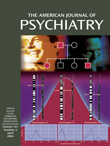Tardive Dyskinesia in an Autistic Patient Treated With Risperidone
Alex was a 14-year-old boy who was brought to the Stanford University Pervasive Developmental Disorders Clinic for increasingly aggressive and disruptive behavior. He had been diagnosed with autism at an early age. The diagnosis was confirmed with DSM-IV criteria. Although the aggression began earlier in childhood, he was becoming progressively more dangerous in his community because of his increasing size and the increasingly frequent and indiscriminate nature of his assaultive behavior. Previously, numerous medications were prescribed for Alex, including stimulants, selective serotonin reuptake inhibitors, tricyclic antidepressants, buspirone, and secretin. Of note, Alex had never received any antipsychotic medications.Risperidone was begun at 0.5 mg/day in our clinic and was increased gradually because of ongoing episodes of aggression and impulsivity. Alex’s dose eventually reached 3 mg/day after 16 months of treatment. Shortly thereafter, Alex’s behavior improved dramatically, with decreased aggression, less hyperactivity, improved language functioning, and increased sociability.By the 23rd month of treatment, Alex began to develop a “jerking” of his trunk and abdomen. He and his mother reported that he was moving and writhing his shoulders and trunk throughout the day. Upon examination, Alex had periodic choreic movements of his shoulders and trunk. No oral, lingual, or buccal movements were seen or reported. A neurological examination revealed no other abnormalities. Trials of anticholinergic agents and vitamin E proved to be of little to no benefit. When risperidone was reduced to 2 mg/day, Alex’s behavior deteriorated dramatically, so his dose was returned to 3 mg/day. Subsequently, Alex also experienced dyskinetic movements in the oculomotor muscles.After numerous discussions with Alex and his parents about the risks and benefits of risperidone, Alex continues to take risperidone at 3 mg/day, along with benztropine, 2 mg b.i.d., and a vitamin E supplement. He continues to benefit behaviorally from the drug regimen.
References
Information & Authors
Information
Published In
History
Authors
Metrics & Citations
Metrics
Citations
Export Citations
If you have the appropriate software installed, you can download article citation data to the citation manager of your choice. Simply select your manager software from the list below and click Download.
For more information or tips please see 'Downloading to a citation manager' in the Help menu.
View Options
View options
PDF/EPUB
View PDF/EPUBGet Access
Login options
Already a subscriber? Access your subscription through your login credentials or your institution for full access to this article.
Personal login Institutional Login Open Athens loginNot a subscriber?
PsychiatryOnline subscription options offer access to the DSM-5-TR® library, books, journals, CME, and patient resources. This all-in-one virtual library provides psychiatrists and mental health professionals with key resources for diagnosis, treatment, research, and professional development.
Need more help? PsychiatryOnline Customer Service may be reached by emailing [email protected] or by calling 800-368-5777 (in the U.S.) or 703-907-7322 (outside the U.S.).

